Out of Crisis: Meet Lucreshia Simon
Any financial setback – whether it’s a job loss, medical bills or the death of a loved one – can rock a household to its foundation and send it teetering into uncertainty.
But what happens when multiple tragedies strike at once?
Detroit resident Lucreshia Simon — a mother of five and passionate owner of a pop-up juicing business — can say a thing or two about overcoming tragedy. But when the crises kept piling up, she turned to United Way for Southeastern Michigan partner agency Wayne Metropolitan Community Action Agency for the help she desperately needed.
“I thought, ‘How am I going to do this?’” Lucreshia said. “I was scared I was going to lose my house because I didn’t have the money to pay my back taxes.”
A growing problem
The COVID-19 pandemic has caused the number of families facing housing struggles to grow.
The number of homes in foreclosure in late 2020 dropped 80 percent year over year due to the foreclosure moratorium, which is currently in place through January 2021. But that number belies the reality of many homeowners who may be falling behind on their taxes or mortgage payments.
As of the end of September, an estimated 3.4 million homeowners were enrolled in mortgage forbearance plans.
Renters are at an even higher risk of losing their homes. A study from August found that as many as 40 million people in America are at risk of eviction. And, as with many impacts of the pandemic, communities of color are worse off. Black households are twice as likely to face eviction as white households.
United Way works with a network of hundreds of community organizations to ensure that people can get the immediate support they need in times of crisis, as well as find long-term solutions to keep them stable. In the housing space, we support initiatives through our government and nonprofit partners that help families facing eviction or foreclosure stay in their homes, and build their skills and resources to keep them in stable housing.
Since March, our COVID-19 Community Response Fund has awarded 335 grants totaling more than $24 million to support basic needs in our region, including housing.
Funding from United Way helps Wayne Metro fill gaps in state and federal funding sources. And during the COVID-19 pandemic, that relationship expanded to ensure that the resulting surges in requests for immediate and long-term financial help could be met.
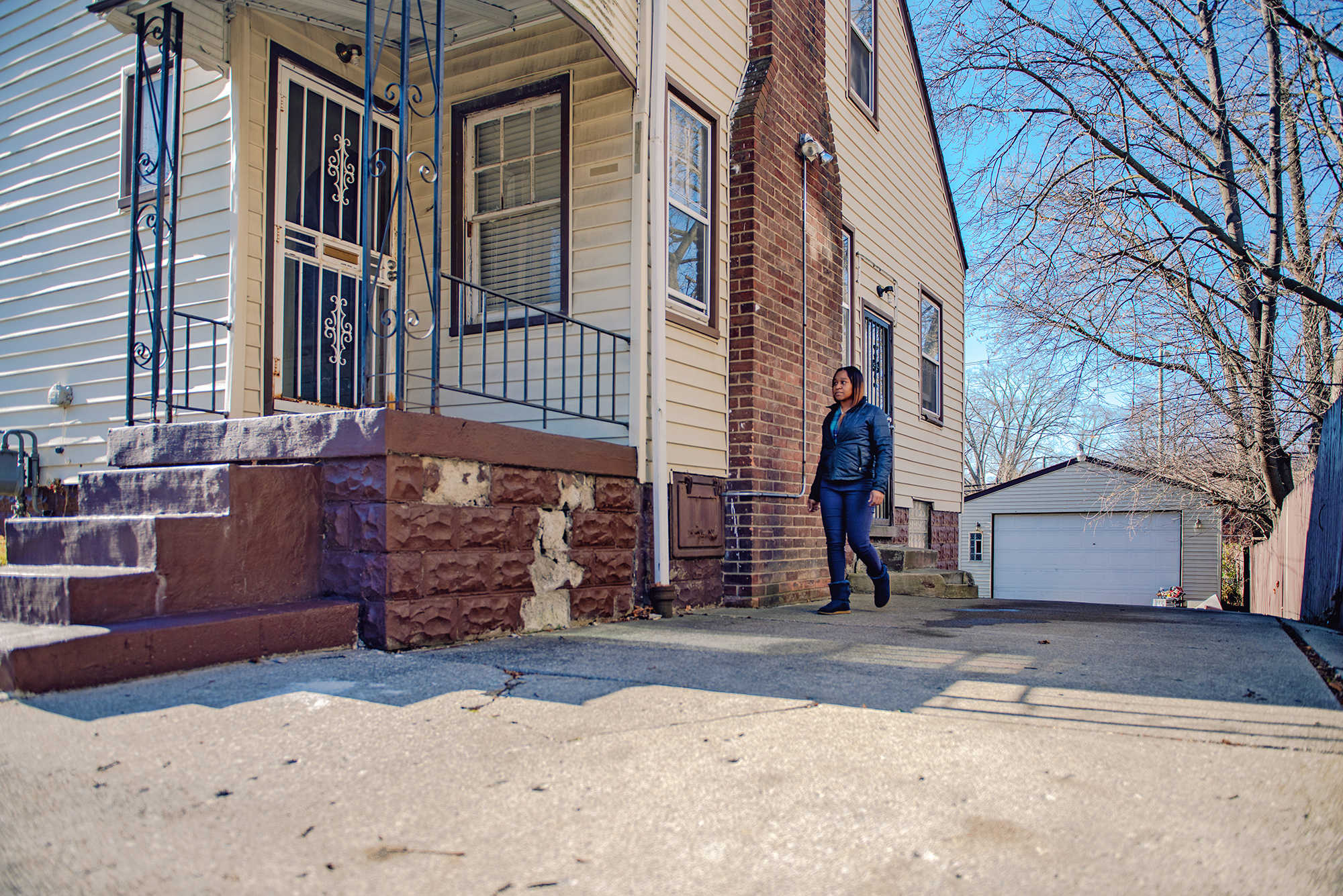
Keeping the family together
In 2017, a car accident left Lucreshia with a torn rotator cuff and restrictions on what kind of work she could perform. Losing her means of getting to and from work was salt in the wound.
Lucreshia’s financial struggles continued when a string of tragedies and an unexpected property tax burden fell upon her in 2018.
“Me and my children’s father had a juicing business, but when he got sick, everything slowed down,” she said.
Lucreshia helped care for him until he died. Then, she was under tremendous pressure, questioning whether she wanted to continue her business any longer now that her partner was gone.
Her partner had purchased a house in Detroit for Lucreshia, which she assumed ownership of when he died. That’s when she found out the property had been delinquent on taxes for the past few years and had racked up a massive unpaid water bill.
“I thought, ‘How am I going to do this?’” Lucreshia said. “I was scared I was going to lose my house because I didn’t have the money to pay.”
In December 2018, she received the foreclosure notice. At the forefront of her mind was how she would keep her family together.
“I was scared,” she said. “My first thought was ‘I can’t have me and my children out on the street,’ so I had to figure out something. We gotta make something work.”
She sought help from our partner organization Wayne Metro that same month.
““My first thought was ‘I can’t have me and my children out on the street,’ so I had to figure out something,” Lucreshia said.
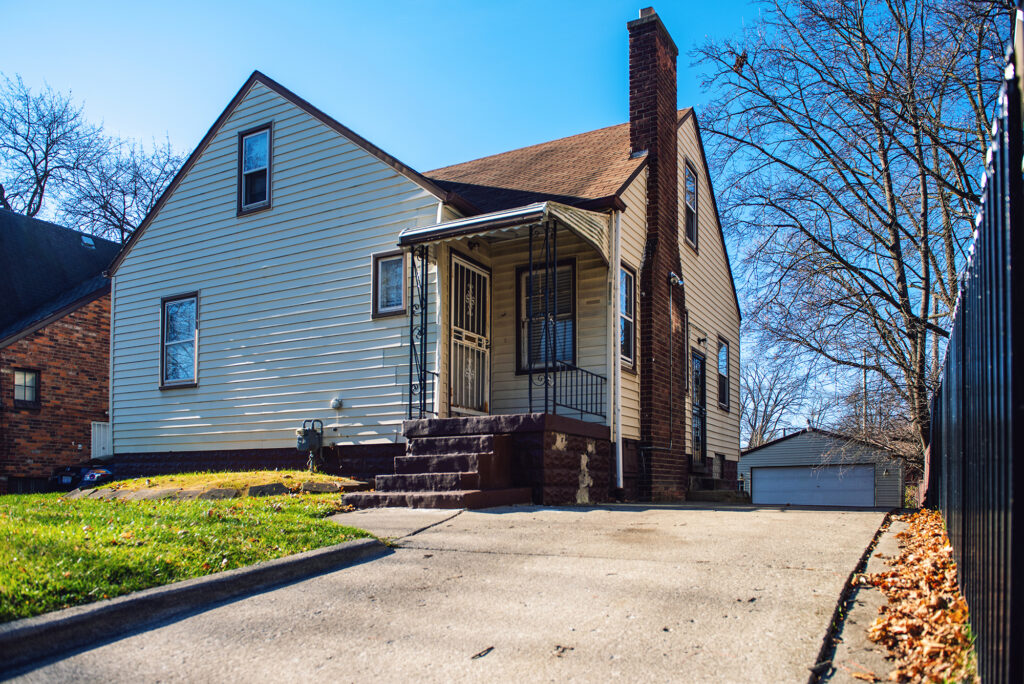
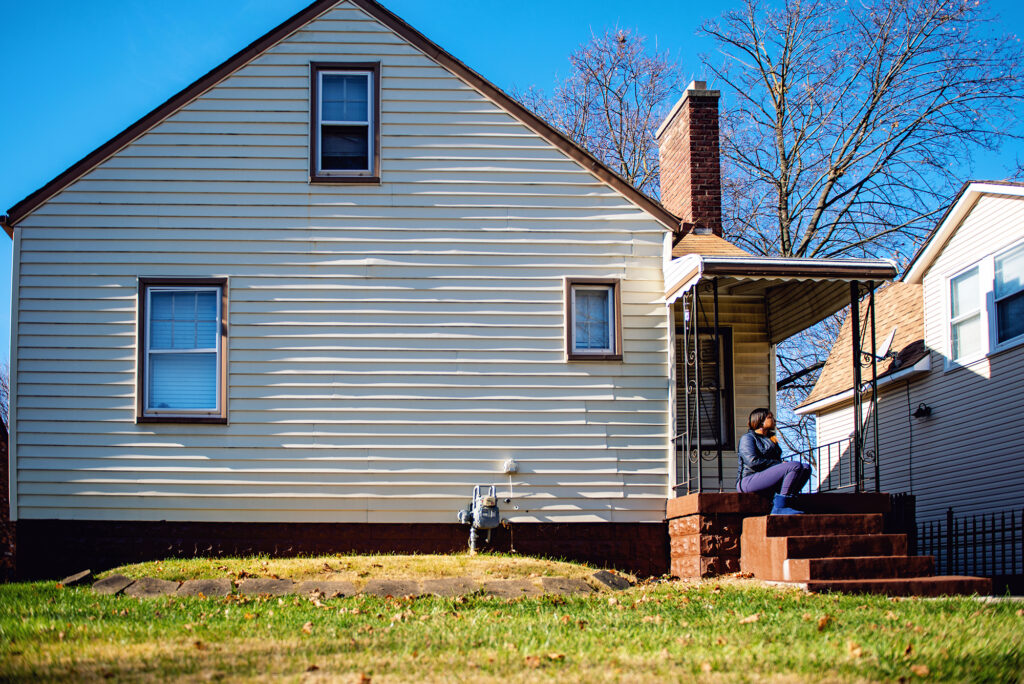
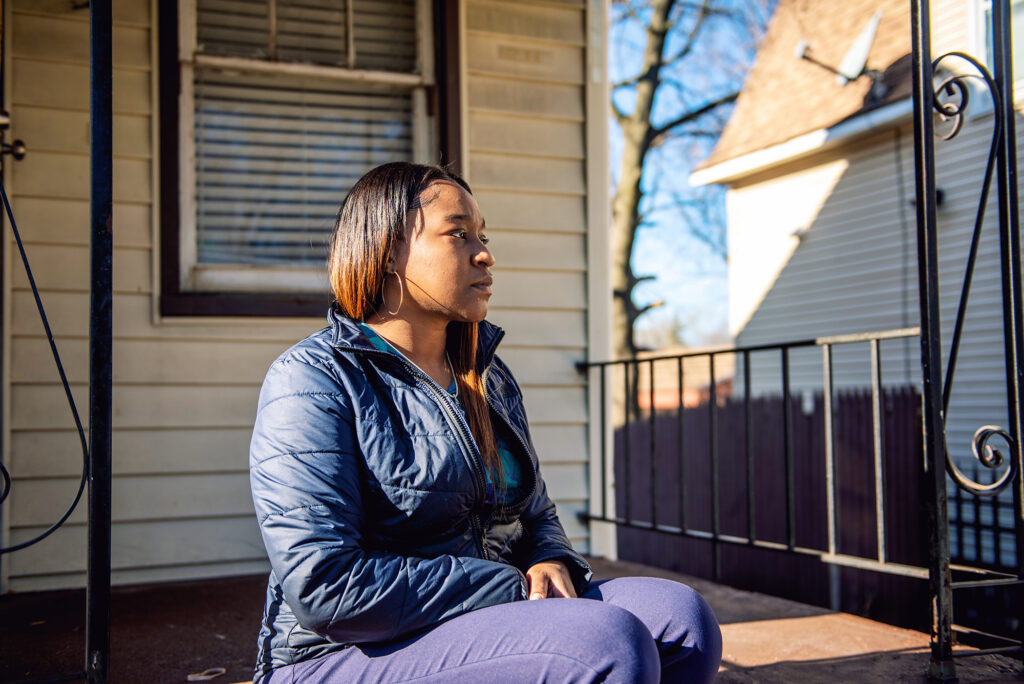
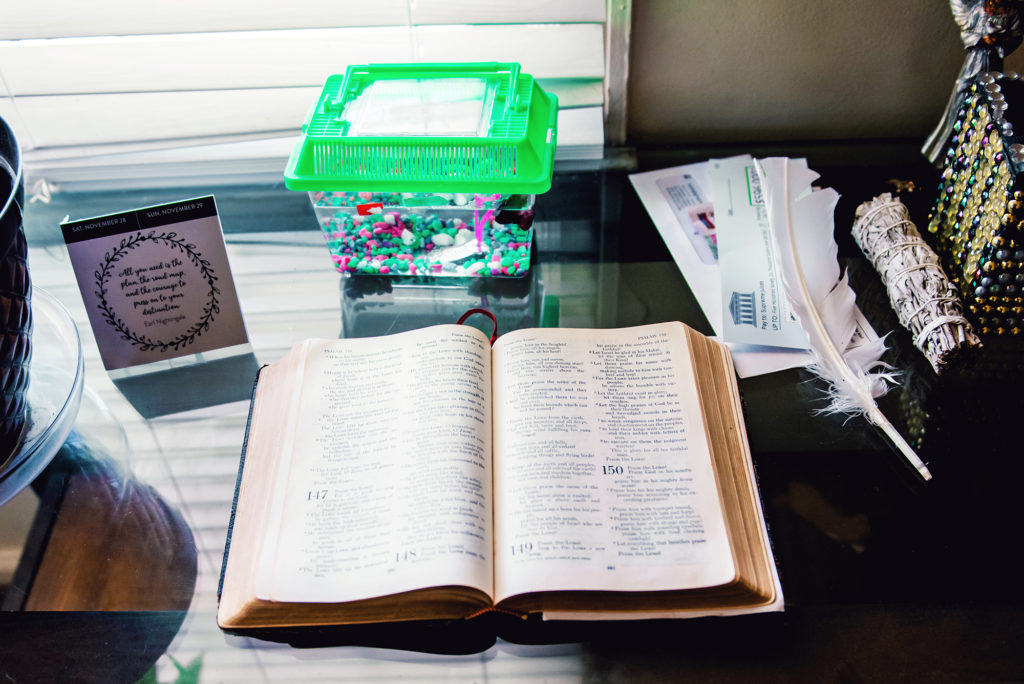
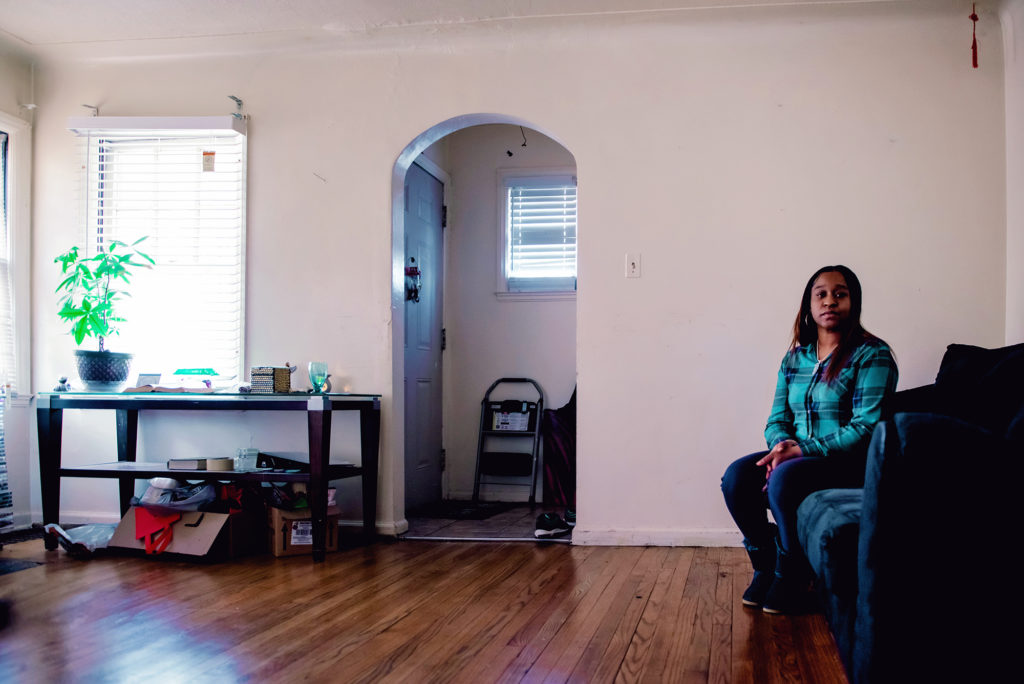
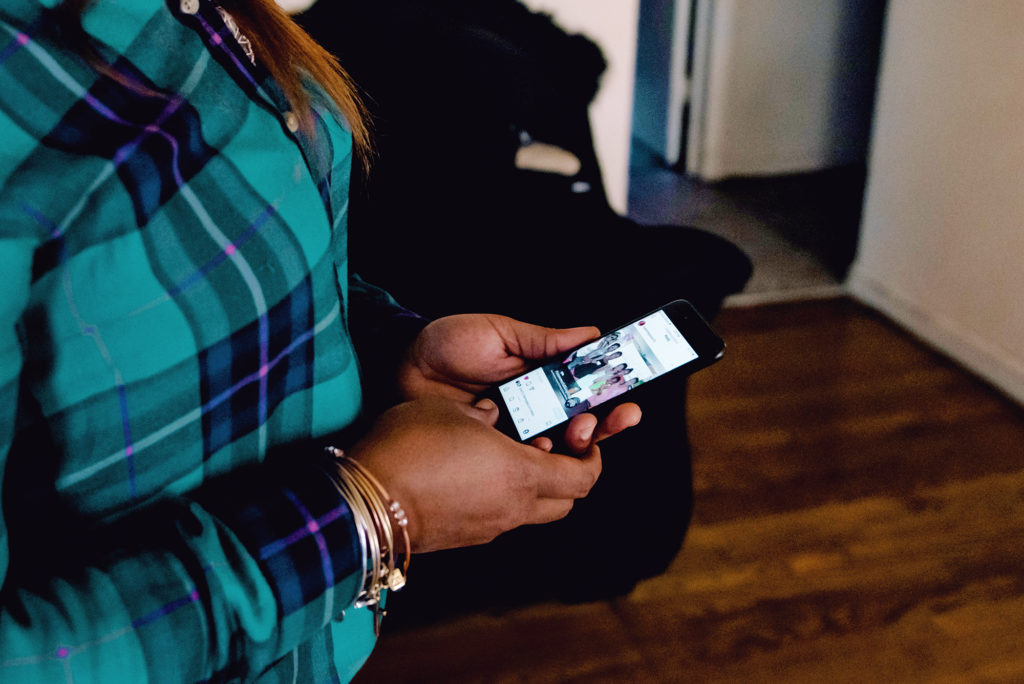
Bringing stability to the household
A friend had originally recommended in late 2018 that Lucreshia contact Wayne Metro to enroll in the Water Residential Assistance Program for aid in paying off the past-due water bill she inherited with the house.
But Lucreshia’s struggles continued.
A doctor visit for stomach pain in early 2019 resulted in surgery to remove a cyst on her ovary. The long recovery time that followed prevented Lucreshia from finding work. A stomach ulcer and gallbladder surgery earlier this year also required some recovery, preventing her from working for a time.
In 2020, the COVID-19 pandemic hit, affecting her juicing business and causing her to take up various jobs to make ends meet – all while helping her younger children with their virtual studies.
Despite these and other setbacks, Lucreshia has been able to provide for her family through various side jobs, including a volunteer intake processing role at a Dearborn Heights COVID-19 testing facility that recently turned into a permanent position.
“Assisting someone with their property taxes goes toward stabilizing that home, that neighborhood and ultimately the community.”
But those back taxes and the threat of foreclosure loomed.
She approached Wayne Metro again this year, and immediately the organization was able to take some weight off her shoulders by paying off a portion of her back taxes within two weeks.
Lindsay Westin, Financial Empowerment Center manager at Wayne Metro, said Lucreshia fell under the $1,500 property tax assistance threshold for the organization, meaning she was eligible for immediate payment of balance due. In the event someone owes more than $1,500, they’re partnered with one of Wayne Metro’s Financial Empowerment Center counselors to review their property tax situation as a whole.
Partnering with the Wayne County Treasurer’s Office, Wayne Metro’s Financial Empowerment Center serves approximately 700 Wayne County and city of Detroit residents annually.
Lindsay added that helping someone avoid losing their home has far-reaching benefits for the community at large.
“Assisting someone with their property taxes goes toward stabilizing that home, that neighborhood and ultimately the community,” she said. “It’s an individual household effort that goes beyond that household and family. Plus, you’re making a difference in their lives by easing the burden of property taxes or risk of foreclosure, allowing them to focus on other areas of their lives.”
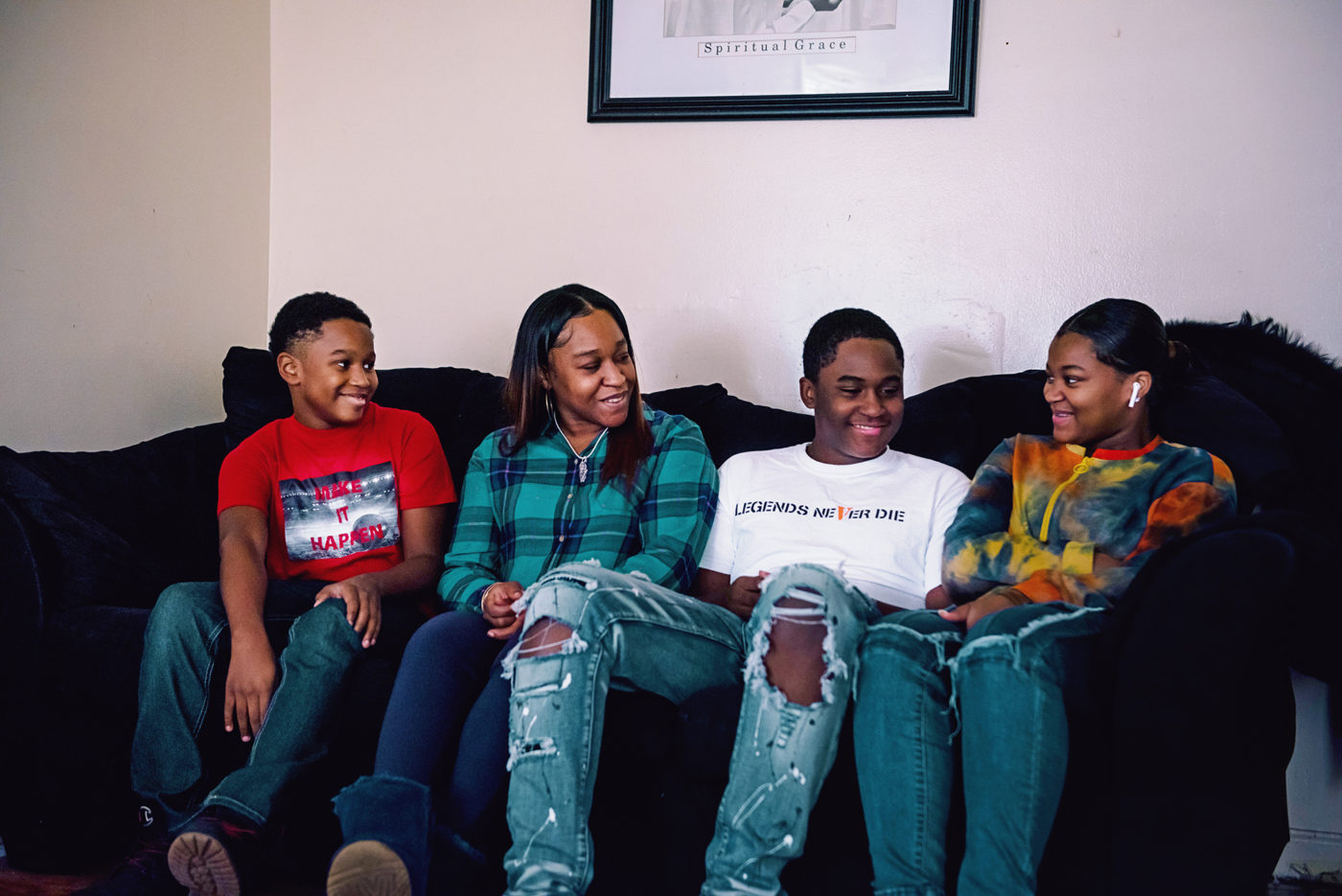
“I can’t tell people to try to plan ahead because things just happen and we’re never prepared for the unexpected,” Lucreshia said. “But never be scared to ask for help because you never know if it’ll be available if you never ask.”
A partnership for stability
Megan Thibos, director of economic mobility at United Way for Southeastern Michigan, added that assuring stable housing can help prevent a slew of other deleterious effects of limited finances and give families the chance to focus on other priorities or opportunities for economic advancement.
“Having a stable home is a fundamental platform for family well-being as well as an important foundation to economic mobility,” Megan said. “Instability in one area can cause your entire life to fall apart, and there are a lot of ripple effects between the economic dimensions and the physical health dimensions of someone’s life.”
United Way has long supported Wayne Metro as a grant-funded partner. We also support the organization’s Volunteer Income Tax Assistance program and host a Greater Detroit Center for Working Families there, the latter of which provides financial coaching and income assistance.
“Instability in one area can cause your entire life to fall apart,” said Megan. “There are a lot of ripple effects between the economic dimensions and the physical health dimensions of someone’s life.”
This year, that support continued with COVID-19 grant funding, as well as a grant from BET and United Way to support organizations like Wayne Metro that specifically serve the Black community.
Together, both organizations help thousands of people like Lucreshia become financially stable and empowered each year.
“It’s better for everyone when we can prevent a destabilizing event like tax foreclosure,” Megan said.
Room to breathe, time to grow
With the threat of foreclosure in the rearview mirror, Lucreshia is looking to continue her education to improve her flexibility in the job market as well. For added stability, she re-enrolled in the WRAP program for a second year in March 2020.
With a little help, she’s making it – and now she’s got some room to breathe without the thought of potential homelessness gnawing at the back of her mind.
“Don’t be scared to ask for help,” Lucreshia said. “That was one of my things – I never really had to ask anyone for anything, and to be in a situation where you feel like you have to ask for something, sometimes it makes you feel like you’re a burden on others.
“But never be scared to ask for help because you never know if it’ll be available if you never ask,” she added. “I can’t tell people to try to plan ahead because things just happen and we’re never prepared for the unexpected. But I thank Wayne Metro and United Way for being of assistance, and I truly, greatly appreciate it.”